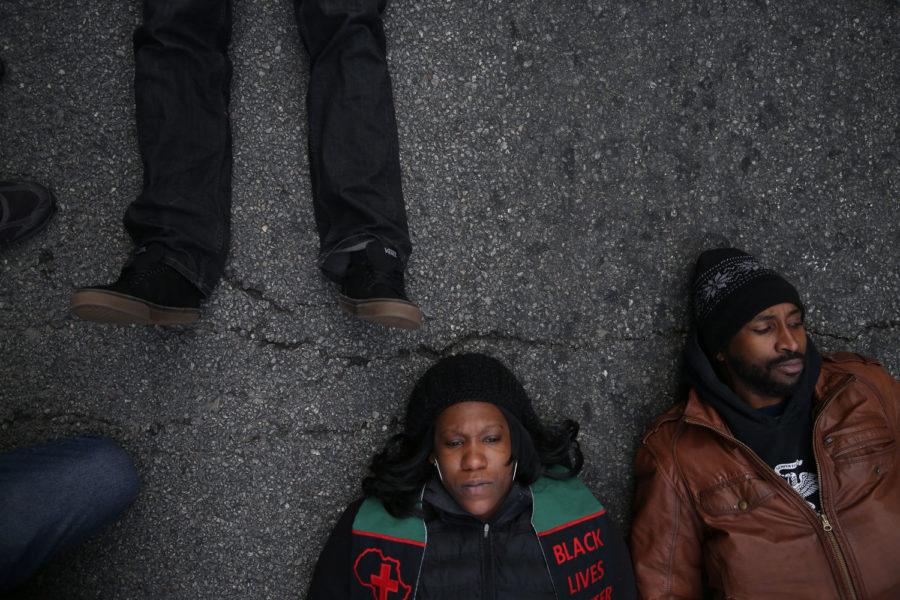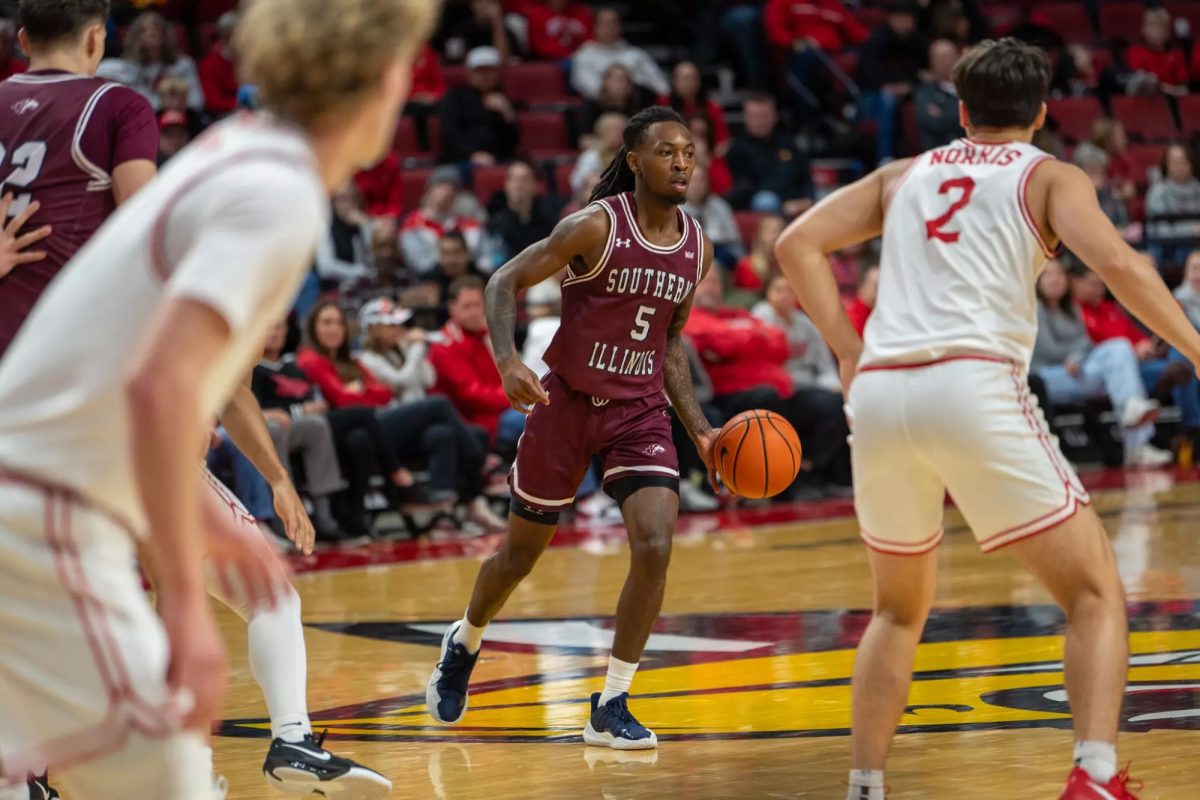Does Black Lives Matter really matter?
March 18, 2016
In 1969, Illinois’ Cook County states attorney Edward Hanrahan orchestrated what amounted to a police assassination of Fred Hampton and Mark Clark, two leaders of the Illinois Black Panther Party.
Hanrahan — who was later indicted for obstruction of justice, and acquitted — triggered an electoral revolt in the black community that booted him from office and sparked an independent black political movement, culminating in the election of Harold Washington, Chicago’s first black mayor.
Many analysts look to that episode when searching for historical analogies for the recent defeat of two-term Cook County State’s Attorney Anita Alvarez, who lost to Kim Foxx, a black woman who was formerly her assistant.
Advertisement
Alvarez was the target of vigorous protests that condemned her for waiting 400 days before announcing murder charges against a Chicago police officer who fired 16 bullets into 17-year-old Laquan McDonald, as he walked unarmed in the middle of a Chicago street in October 2014.
Foxx’s successful campaign focused heavily on that complaint.
What’s more, Alvarez charged the officer with murder only after it was announced that a police dash-cam video depicting the shooting would be released to the public. The damning video features Chicago cop Jason Van Dyke firing at the unarmed teenager who was walking away from him. Officer Van Dyke continued pumping bullets into McDonald even after his body had fallen.
The case attracted national, and even global attention, and provoked a political crisis for Chicago Mayor Rahm Emanuel, forcing the resignation of several municipal officials, including Police Superintendent Garry McCarthy.
Perhaps more importantly, it galvanised a vibrant activist community of students, newly energised street activists and protest-hardened veterans that has since become an influential player in a growing number of city issues.
When Alvarez refused demands for her resignation, those emerging activist networks went to work for Foxx’s campaign.
So, in many ways, Alvarez’s defeat is an echo of Hanrahan’s rejection at the ballot box.
Advertisement*
Will Black Lives Matter affect the election?
Now, many black activists want to extend the analogy, hoping to parlay the outrage at Alvarez into an electoral movement, as did the Hanrahan revolt. Those questions are particularly relevant now as analysts assess the effects of the Black Lives Matter (BLM) movement on electoral activity.
The BLM is more or less three-years-old, having coalesced following the 2013 acquittal of George Zimmerman for the shooting death of an unarmed, black 17-year-old named Trayvon Martin. The group expanded and gained national notice after the 2014 deaths of Michael Brown in Ferguson, Mo., and Eric Garner in Staten Island, Ny.
Since the start of this 2016 election cycle, BLM protesters have gained media prominence by confronting presidential candidates and demanding they address issues of criminal justice reform and racist policing.
The group has attracted some criticism for disrupting the campaigns of candidates who are more likely to be sympathetic. But those incidents have proven to be boons both for the BLM movement and the candidates themselves, at least the Democrats.
The BLM confrontation with Sanders, for example, required the Vermont senator to focus on his civil rights record and begin tailoring his message more to a black audience. As a secular, democratic socialist from an overwhelmingly white state, Sanders never had that angle of vision. And, although Sanders still labors hard to attract black votes, his openness to the movement’s challenge has improved his image within the black activist community.
Similarly, the movement has forced Hillary Clinton to confront some questionable policies of the administration of her husband, Bill Clinton. Until being challenged by BLM members, Clinton boasted about his tenure (1993-2001), which featured a significant increase in the good fortunes of black Americans (home ownership and employment increased).
But BLM protesters forced Clinton to address the explosive growth in the prison population which also occurred during his presidency, largely because of the harsh law enforcement policies he signed into law.
Those disruptive acts have attracted media attention and altered the campaign spiels of the Democratic candidates, but critics question whether those techniques have weightier and more substantial implications.
The election of Kim Foxx in the Democratic primary for Cook County States Attorney (tantamount to election in Democrat-heavy Cook County) is a tangible result.
Trump’s ‘racism … won’t go down in Chicago’
“We worked hard to get Kim Foxx elected,” said Jedidiah Brown, the founder of a group called the Young Leaders Alliance. “In fact, one of the most encouraging things of this campaign was how many young black people got involved in the process.”
Although his group is not officially connected to BLM, it, like many other organizations that emerged in the wake of controversy about police shootings, share the same spirit and adopt similar tactics.
The 29-year-old Brown perhaps is best known as the young black man captured on video storming the stage at the cancelled Trump rally in Chicago on March 11. This act has become a symbol of Chicago’s audacious activist energy, and his motivations make explicit the connection between these protest movements and electoral politics.
“We just wanted to make it clear that the racism and hate that Trump and his followers spew won’t go down in Chicago,” he said.
“The young people disrupting Trump’s racist rallies are the same young people who demand justice for the shooting of Laquan McDonald and Rekia Boyd [an unarmed black woman also killed by a bullet from a Chicago cop],” Brown told me.
“What you see here in Chicago is a swelling of consciousness among young people. This is no joke or no one-time fling. They are ready to get deeply involved in the political structure and they’re very serious about change.”
Growing support and an energised electorate
Brown said that in the days since he stormed the Trump stage, he has received a blizzard of support from international sources.
“We’ve been so overwhelmed by groups from across the world that we’ve decided to make some formal connections,” he said.
The movement also seems to have had some success in Cleveland Ohio’s Cuyahoga County, where prosecuting attorney Timothy McGinty was defeated by Michael O’Malley, a former deputy country prosecutor.
McGinty led the contentious grand jury inquiry into the fatal police shooting of Tamir Rice, a 12-year-old black boy who was shot by police in November 2014 while playing with a toy gun in a park.
The election of Foxx, a newcomer with a slight resume, in Cook County illustrates the potential of an energized electorate and gives hope to those who insist the spirit of BLM will manifest in electoral power.
“I look at the electoral energy that gave us Kim Foxx and I see the possibility of another Harold Washington in Chicago’s future,” said Robert Starks, a retired professor of political science and one of the activists who led the fight to elect Washington.
Critics, however, remain unconvinced.
Source: Al Jazeera
___
(c)2016 Al Jazeera (Doha, Qatar)
Visit Al Jazeera (Doha, Qatar) at www.aljazeera.com
Distributed by Tribune Content Agency, LLC.
Advertisement









